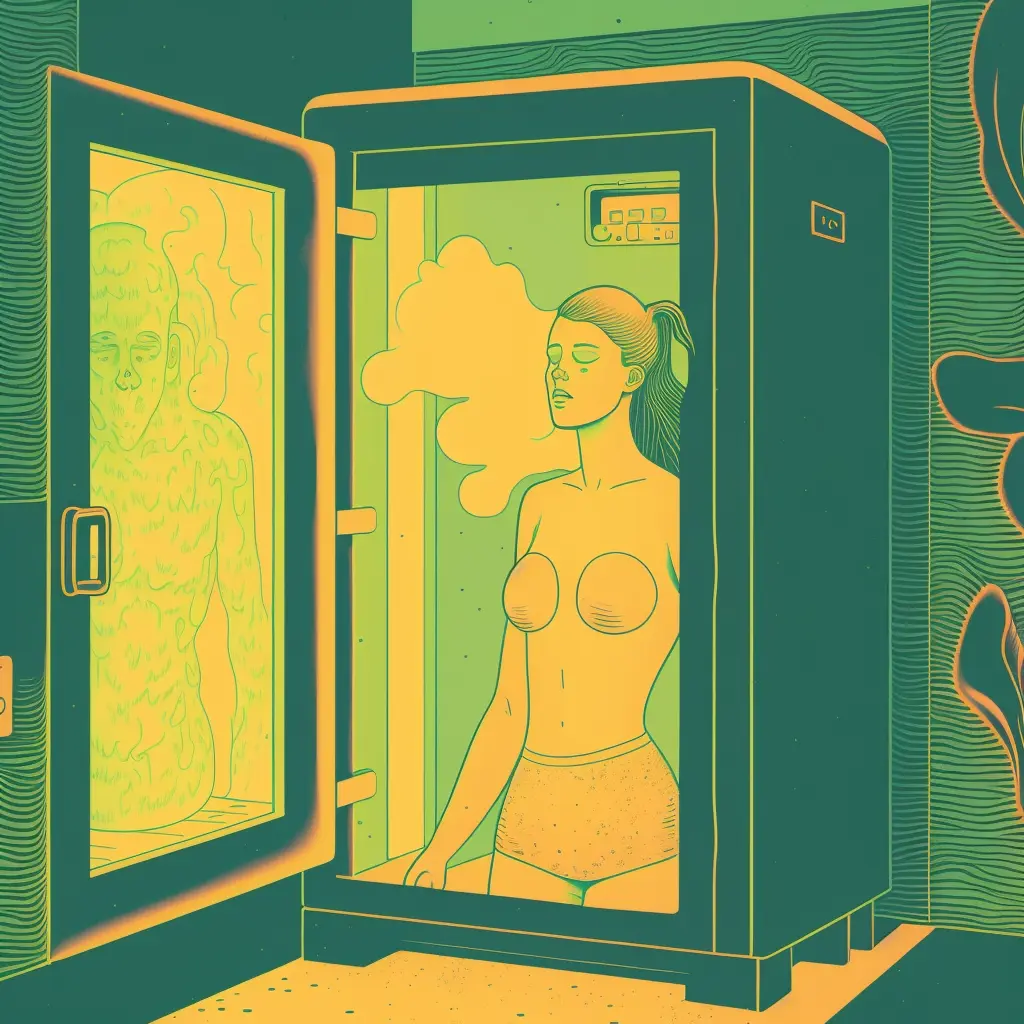There's a growing interest in combining saunas with dry fasting, largely due to their synergistic effects. Those who have experienced benefits from dry fasting are particularly intrigued by the idea of enhancing these effects with the dehydration that occurs in saunas. It's important to note, though, that this combination can be quite intense. The safest advice is generally to avoid mixing the two, but for those who are keen on experimentation, there are certain synergies worth considering, especially in terms of boosting autophagy – the body's process of cleaning out damaged cells.
However, it's crucial to recognize that many people turn to dry fasting as a last resort, often to address health issues that conventional medicine hasn't resolved. In such cases, the body might not be in the best condition to handle additional stressors like those from a sauna. Once a person's health improves, exploring these methods could be more viable.
I want to focus on why combining a sauna with dry fasting can be considered, despite the controversies and risks. It's essential to understand how to minimize these risks, particularly those related to heat stress and dehydration. Heat stress can trigger viral reactivation, which is a significant concern for those already dealing with illnesses. While heat stress typically triggers autophagy and produces heat shock proteins, which are beneficial, this can backfire if the body's autophagy process is impaired. In such scenarios, the body may not be able to manage the additional stress effectively.
I've explored my own experiences with saunas and dry fasting. Initially, I found the negatives outweighed the positives. During a fast, particularly on the second day, I experienced difficulties, partly due to my battle with long Covid, a post-viral condition. My body's mechanisms, including autophagy, were significantly impacted, making it hard to recover from the added stress of heat exposure. This led me to advise caution in using these methods together. However, as my health improved, I discovered that using the sauna could accelerate my recovery when done properly.
In this article, I'm focusing on enhancing autophagic flux – the process of autophagy – as this aspect hasn't been covered extensively in my previous discussions on saunas. I've already explored other facets, like fertility, detoxification, weight loss, ketosis, and the various benefits of different types of saunas, including lymph flow improvement, heat shock proteins, endorphins, and growth hormone. To avoid repetition and to provide a comprehensive view, I recommend reading my other articles which offer a broader perspective on these topics.
I talk more about sauna and dry fasting here:


Step-by-Step Strategy to Boost Autophagic Flux with Sauna
The premise will be to use the Sauna during a 36-hour dry fast, but convert it into a water fast a few hours after the sauna session. The idea is to activate hyperosmotic stress before transitioning back to water. The hyperosmotic stress triggers deeper ketosis and additional autophagy mechanisms.
Why is it safer to be in a fasted state when you use the sauna for someone dealing with chronic illness? Your autophagy mechanisms are most likely impaired. Heat stress causes damage to the body on a cellular level, specifically to proteins. Chronic illness usually indicates disrupted healing mechanisms like Autophagy. So you'll need to supercharge them yourself before you go into heat stress. The absolute minimum you should be looking for is deep ketosis, which can be achieved with low/zero-carb diets for a few days before.
Example Schedule
6PM Last meal, low-carb
9AM (12 hours) [necessary or synergistic supplements]
4PM Work out [optional]
5PM (23 hours) Sauna (you can mix some additional therapies here like breathwork or others).
[Avoid water for a few hours to maintain dehydrated state and trigger hyperosmotic autophagy]
8PM (either continue as dry fast or transition to water fast)
9AM (36 hours) Break the fast ('breakfast')


Autophagy and Growth Hormone Boost
Growth Hormone (GH) plays a crucial role in preventing protein breakdown, thus shielding the body from damage caused by heat stress. Interestingly, heat stress itself contributes to the denaturation and breakdown of proteins, which can be advantageous, especially in dismantling viruses. Research indicates that Growth Hormone levels surge after about 24 hours of fasting. Similarly, sauna sessions significantly boost Growth Hormone production. When fasting is combined with sauna use, the effect on Growth Hormone is akin to the impact of taking steroids, providing a substantial boost to the body's ability to repair and regenerate.
Further studies introduce hyperosmotic stress as a novel trigger for autophagy, the body's process of recycling cellular components. By engaging in dry fasting and sauna use, one can enhance this autophagic flux. In sauna environments, dehydration has been linked to improved outcomes. Studies comparing individuals who drink water during sauna sessions to those who do not have shown better results in the latter group. These findings, however, didn't explicitly attribute the improvements to hyperosmotic stress. By understanding this connection, we can stay ahead in maximizing the benefits of sauna use and dry fasting.
Additionally, heat shock proteins, particularly those involved in chaperone-mediated autophagy (CMA), play a significant role in upregulating autophagy. Dry fasting amplifies this effect by introducing hyperosmotic stress, which not only increases CMA but also enhances both macro and microautophagy. This enhancement is facilitated through acidosis, increased lysosome activity, and the restructuring of microtubules, making the autophagy process more efficient.
Timing is crucial in maximizing these benefits. Engaging in sauna sessions while the body is already in a state of autophagy is ideal, as it helps balance any potential damage from heat stress. Moreover, research suggests that embracing dehydration during the sauna experience offers more benefits. Therefore, it is recommended to avoid drinking water immediately before entering the sauna. Instead, hydrating an hour or two after the sauna session can optimize the therapeutic effects while still capitalizing on the heightened autophagic activity induced by the combined stressors of heat and dehydration.








